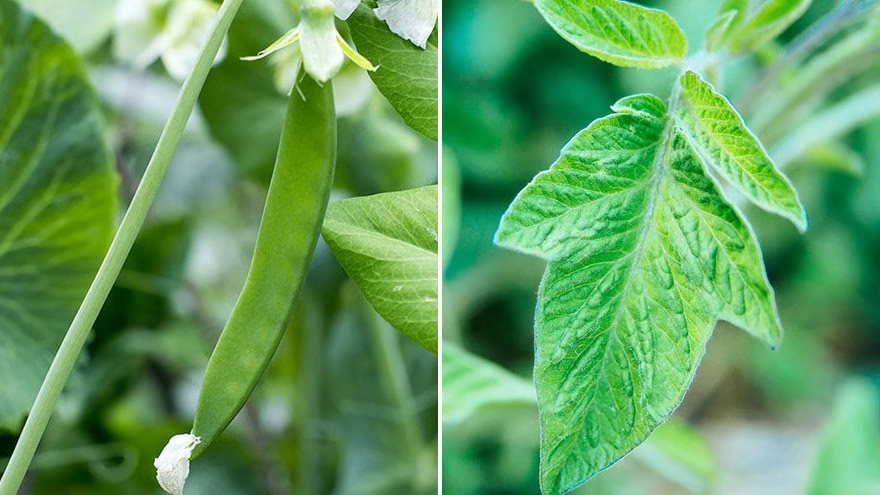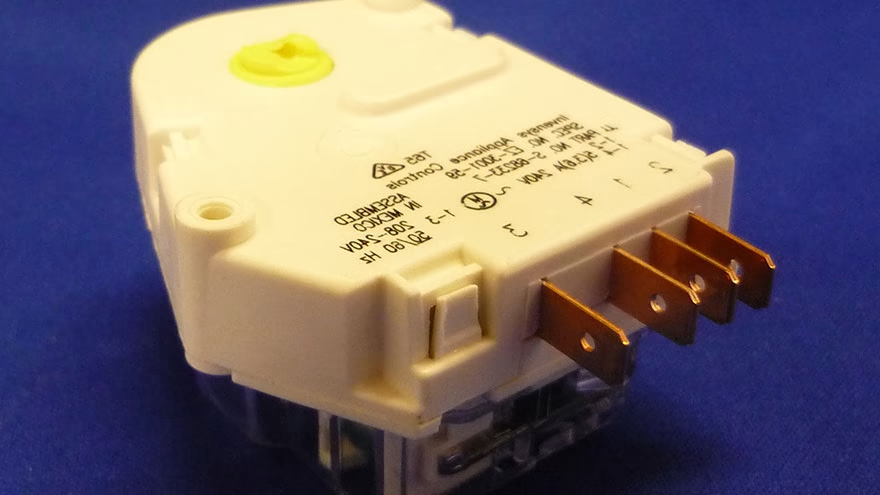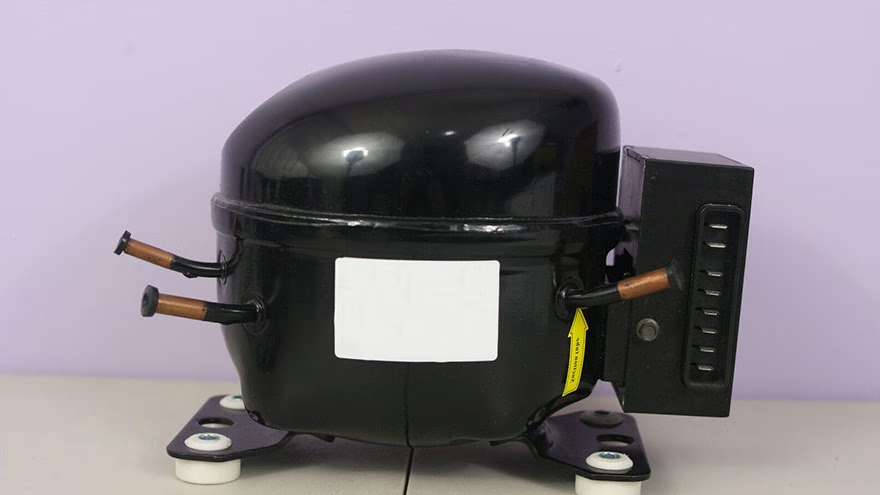Here are some examples of weirdly wonderful vegetables.
Brussels Sprout Leaves
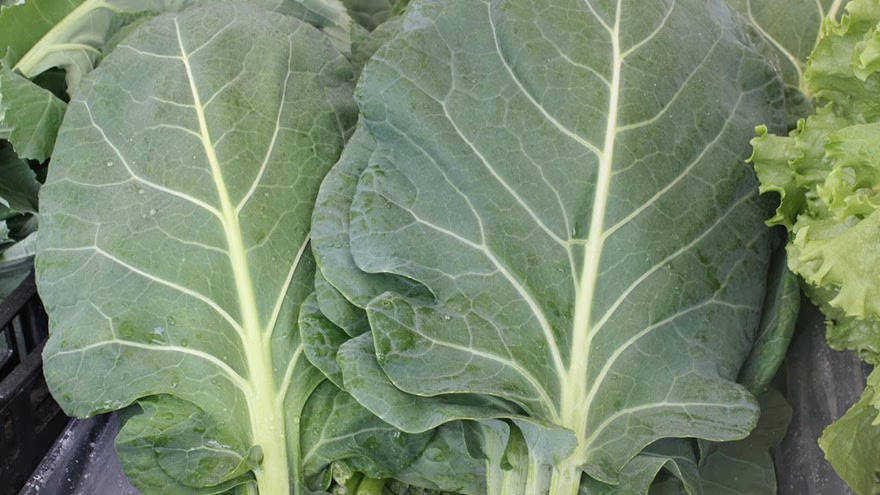
First, if you’ve only eaten Brussels sprouts from grocery stores, you’ve need to try them garden-new. They are not bitter and are much more tender. But aside from the familiar tiny cabbage-head-like parts we’re used to eating, Brussels sprout leaves are edible and delicious, too.
The best are those found at the top of the plant. Cut them off and eat them like any tender green. A bonus: New Brussels sprouts will grow in their place.
You can also eat the other leaves on Brussels sprouts, but you’ll want to cut away the center-running stem and either boil them or sauté them in narrow strips, much as you would collard greens.
Root Vegetable Greens
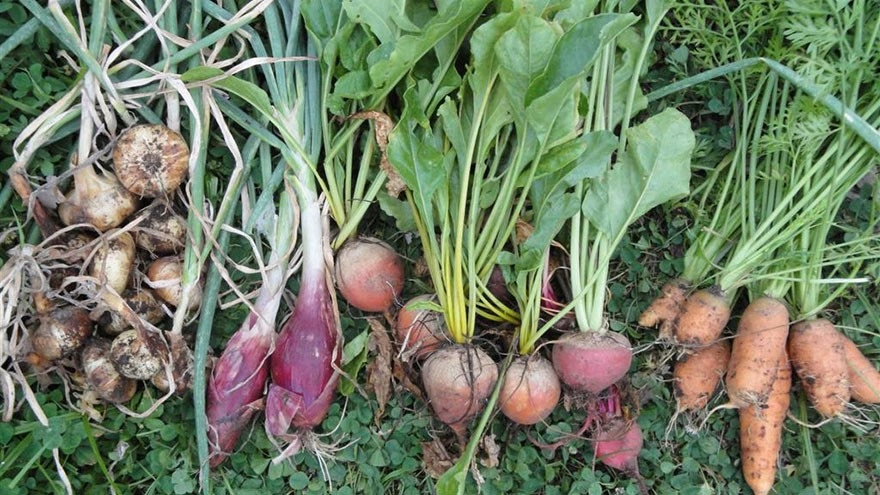
Don’t compost carrot tops! Instead, chop them up and freeze them to use as needed in place of parsley. It’s also a tragedy to toss turnip tops; they are scrumptious cut into thin strips and sautéed with olive oil, garlic, and salt. Radish tops can be cooked the same way.
Sweet Potato Leaves
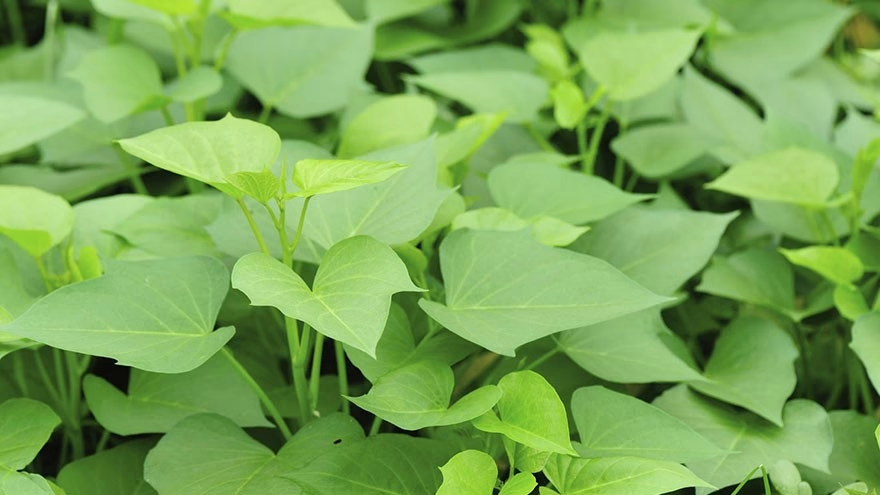
Unlike the regular potato’s leaves and stems, the stems and leaves or sweet potatoes are edible. Try them sautéed like other greens, or added to stews and soups. Avoid larger leaves, as they are very fibrous. You can also eat Kohlrabi and cauliflower leaves; cook them like other types of greens.
Tomato Leaves and Stems
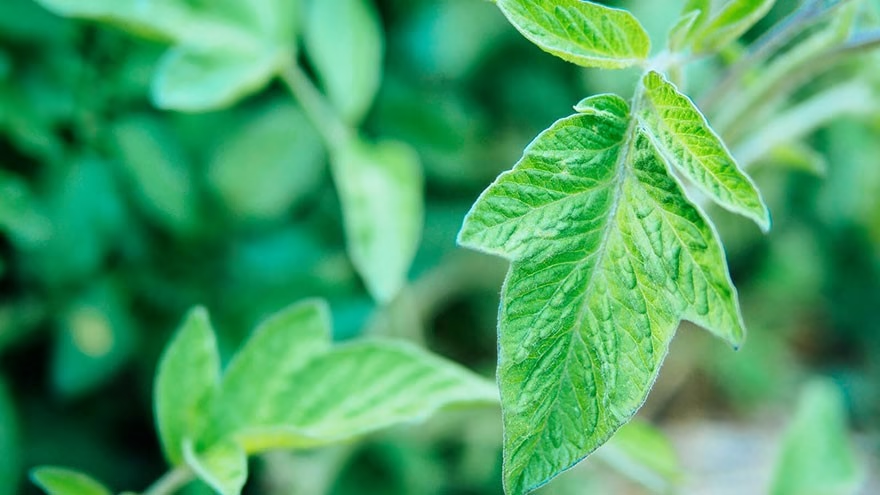
Pick a few (not too many, or the plant will not be able to produce much fruit), wrap in cheesecloth, and place in soup during the last 10 minutes of cooking. Remove the cheesecloth bag before serving.
Pea Leaves
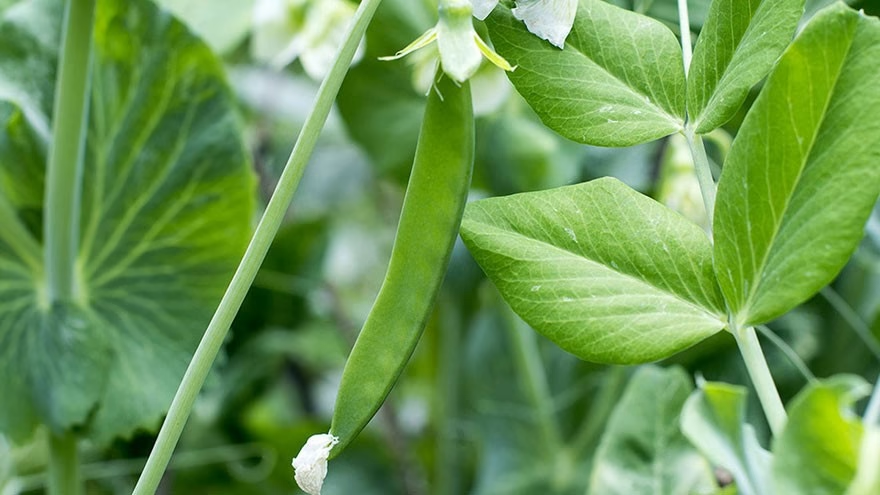
They taste just like peas, especially if you select smaller leaves. Toss them in a salad to give it a flavor boost.
Mini Cabbage Heads
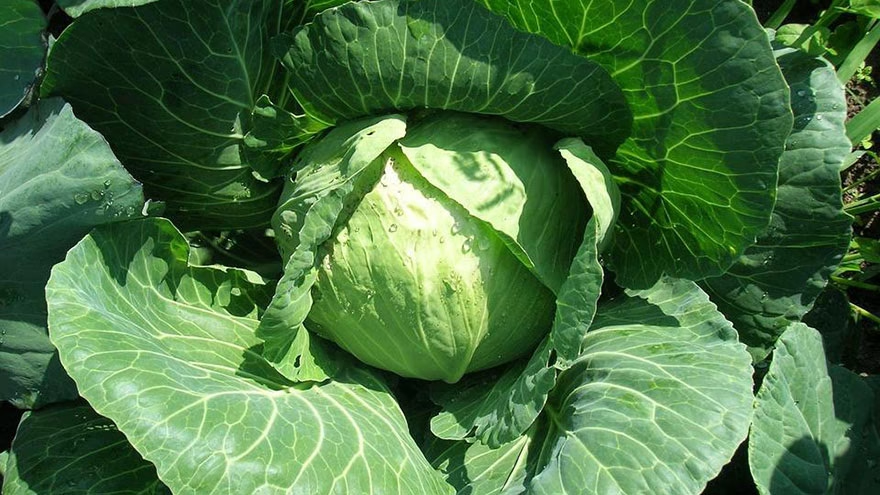
If you grow cabbage, don’t pull out the plant once you cut off the heads. Instead, leave the plant in place with a few of the larger, tougher leaves near the bottom. Mini heads of cabbage will appear and can be eaten just like Brussels sprouts (but they taste just like cabbage).
Lettuce, Chard, Collard Stem
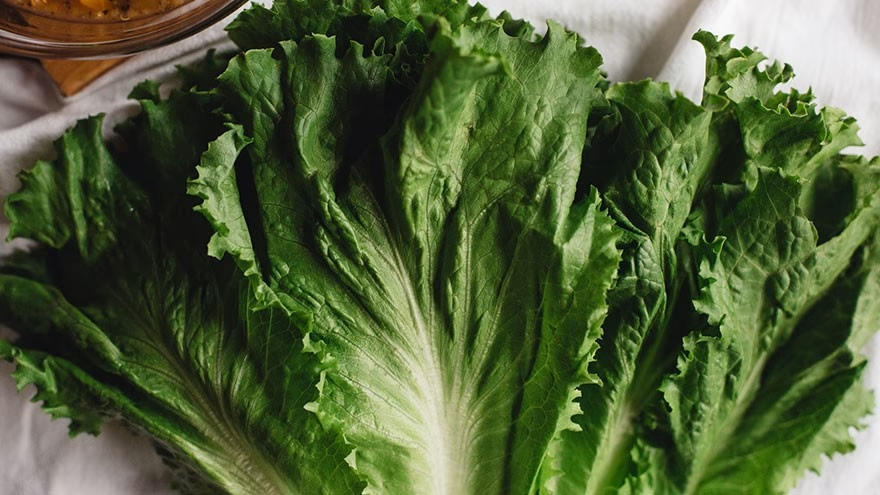
Leafy lettuce grows a thick center stem that’s quite edible. It takes some time to peel, but is yummy roasted or sautéed. Chard and collard leaves that are older should have their thick stems removed before cooking — but save them!
Simmer the stems in wine or stock; strain, drizzle with olive oil, and dash with salt for a delicious treat.
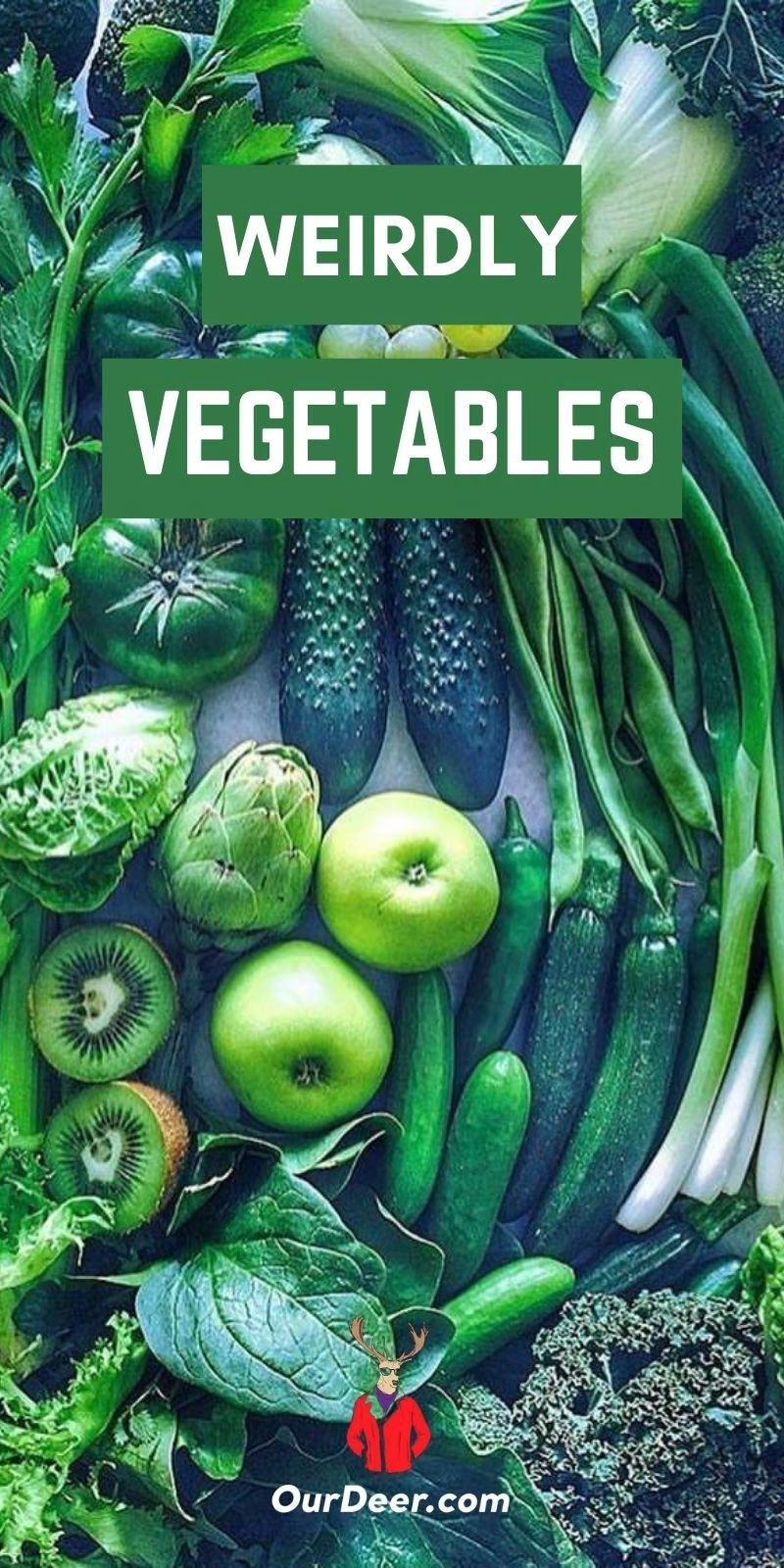
Check out the video version of this article on YouTube
httpv://www.youtube.com/watch?v=QwCinmaTzHM
Save for later
Found this helpful?
Pin this article to your Pinterest board and come back to it whenever you need a reminder.
Save to Pinterest